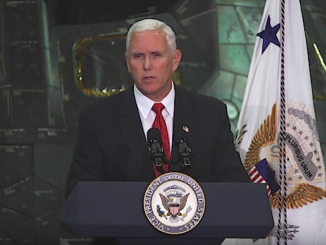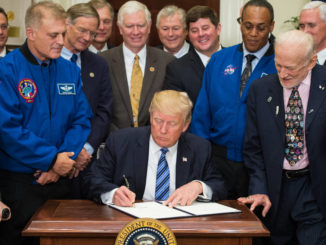
The furtherance of international space cooperation is expected to be at the heart of the third meeting of the National Space Council under the Biden-Harris Administration. Building on multilateral agreements, like the Artemis Accords, Harris will focus on what’s deemed the U.S. Novel Space Activities Authorization and Supervision Framework.
The proposal would permit both the Department of Commerce (DOC) and the Department of Transportation (DOT) authority over novel space activities to, in the White House’s words, “facilitate innovation and further U.S. leadership in the safety, security and long-term sustainability of outer space activities.
A livestream of the NSC meeting will begin at approximately 2 p.m. EST (1900 UTC).
Among the highlights of the framework are a provision that updates the country’s orbital debris mitigation standard practices as well as the formation of the Private Sector Space Activities Interagency Steering Group, which the White House said will “formulate longer term policy and best practices to inform the work of regulatory agencies.”
There will also be discussions of both defense initiatives during the meeting, including bilateral agreements between the U.S. and both Japan and Norway respectively. They will also talk about the Space Force’s Regional Space Advisor program, one that is focused on encouraging shared values in space.
On the launch and landing front, Vice President Harris will also discuss policies like directing the DOT to “pursue new efforts to reduce international duplication and dual licensing of launches and reentries” and also to “begin a multilateral discussion on safety standards for launch, reentry and operation of launch and reentry sites.”



